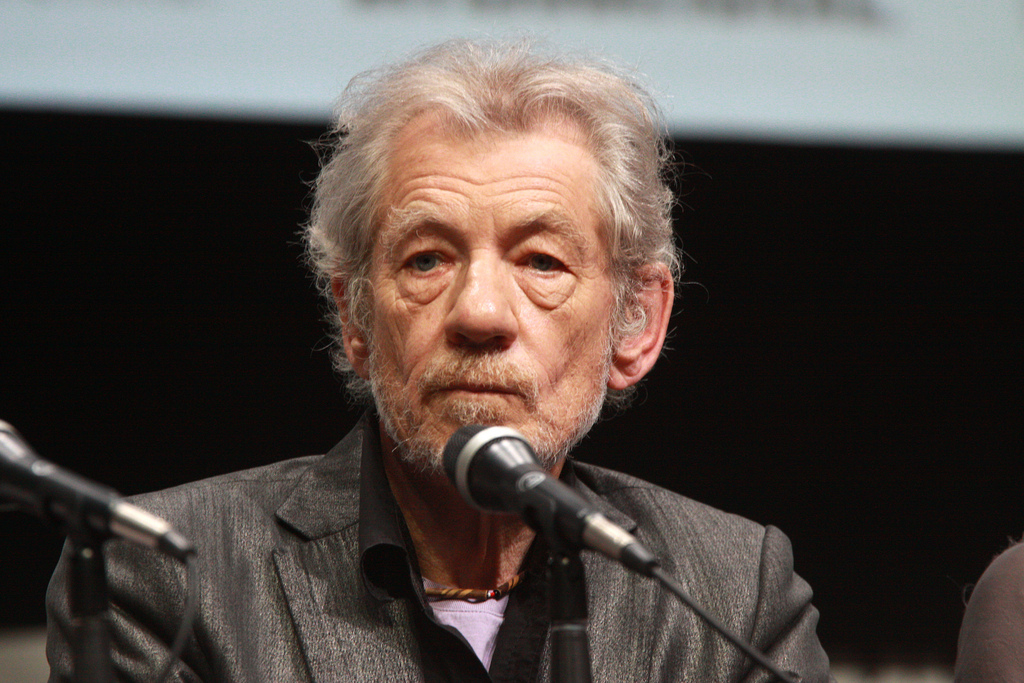Earlier this term Worcester College announced that Sir Ian McKellen had been elected as Distinguished Visiting Fellow for an initial period of three years, set to visit twice a year for workshops and master classes with students. The appointment seems appropriate—the actor world famous for his Shakespearean roles will work alongside Provost Sir Jonathan Bate, who is himself a renowned Shakespearean Scholar, in a college steeped in Shakespearean tradition. Worcester’s annual garden production has traditionally been a Shakespeare play, with an acclaimed performance of Twelfth Night last year as part of Shakespeare’s 400th year anniversary celebrations. In anticipation of Sir Ian’s entrance onto the Oxford drama scene, it seems an appropriate time to reflect on some of his most important Shakespeare roles.
McKellen’s breakout performance came in 1968 in the title role of Richard II. The Prospect Theatre Company production—a low budget but well respected outfit—was directed by Richard Cottrell, whom McKellen had first met at Cambridge and whom he later described as the man “responsible for my becoming a professional actor.” The unbelievable success of the production led to a second tour at the Edinburgh Fringe in 1969, where it was performed alongside Marlowe’s Edward II, with McKellen again playing the title role.
Glowing review succeeded glowing review. Writing in The Sunday Times on 31 August 1969, Harold Hobson gave McKellen what must surely be one of the most pompous compliments in the history of theatre criticism: “The ineffable presence of God himself enters into Mr McKellen’s Richard.”
His Edward was more controversial. Director Tony Robertson, another Cambridge alumnus, took the courageous decision to stage Edward’s gruesome death, involving a red-hot poker thrust into an unspeakable place. The production’s unembarrassed grappling with the play’s homosexual themes provoked outcry but again reviews were excellent. On 19 September 1969 Time Magazine called it “sensuous, unpleasant, funny, guilt-obsessed, and intensely masculine.” After such a season, McKellen was firmly established as a rising star of British theatre.
Eight years later and McKellen was again benefiting from a relationship with another mentor from his student days, Trevor Nunn, now artistic director of the Royal Shakespeare Company. In 1976, Nunn directed McKellen alongside Judi Dench in Macbeth in what Michael Billington (Guardian theatre critic) has described as “a great production that reclaimed the play for the modern era.” Nunn’s concept was to focus on the play as a psychological drama—it ran uninterrupted for 135 minutes with a minimal set in the RSC’s black box theatre The Other Place, making for an intimate and claustrophobic atmosphere.
The success of the production led to a transfer, first to the Donmar Warehouse and then the Young Vic. McKellen once said that “Macbeth was a very lucky play for me.” Thirteen years later, McKellen and Nunn reunited in The Other Place for Othello, with McKellen playing the greatest villain of the English stage. The Jamaican-born American Opera star Willard White made his acting debut in the title role. Again, the black box theatre lent itself to claustrophobia, a domestic drama that spun out of control. Writing in the Times on 26 August 1989, Harry Eyres called it “a production of immense power and grandeur.” These roles are only a snapshot of McKellen’s phenomenal repertoire. If he chooses to get involved, it will be an exciting time for Oxford drama.



